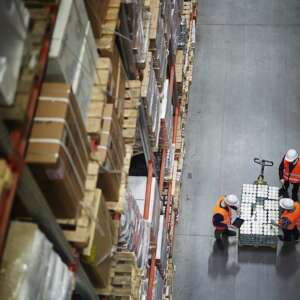The Future of Logistics: Trends and Innovations in Freight Management
The logistics industry is rapidly evolving, driven by technological advancements, changing consumer expectations, and the need for greater efficiency. As a leading freight management company, Golibery Freight is committed to staying ahead of the curve and delivering innovative solutions to our customers.
The Rise of Digitalization in Logistics
Digitalization is transforming the logistics industry in many ways. With the use of advanced technologies like artificial intelligence, blockchain, and the Internet of Things (IoT), logistics companies can now track shipments in real-time, optimize routes, and improve supply chain visibility.
Benefits of Digitalization
1. Increased Efficiency: Digitalization enables logistics companies to automate manual processes, reducing errors and improving productivity.
2. Enhanced Visibility: Real-time tracking and monitoring enable logistics companies to provide accurate updates to customers and stakeholders.
3. Improved Customer Experience: Digitalization enables logistics companies to offer personalized services, timely updates, and proactive issue resolution.
Sustainability in Logistics
As concerns about climate change and environmental sustainability grow, logistics companies are under increasing pressure to reduce their carbon footprint. At Golibery Freight, we’re committed to sustainable practices that minimize our impact on the environment.
Strategies for Sustainable Logistics
1. Route Optimization: We use advanced routing algorithms to reduce fuel consumption and lower emissions.
2. Green Logistics: We prioritize environmentally friendly transportation modes, such as rail and sea freight, whenever possible.
3. Waste Reduction: We implement efficient packaging and loading practices to minimize waste and reduce the need for excess materials.
The Importance of Supply Chain Resilience
Supply chain disruptions can have significant impacts on businesses, from delayed shipments to lost revenue. At Golibery Freight, we understand the importance of building resilient supply chains that can withstand unexpected challenges.
Strategies for Building Supply Chain Resilience
1. Diversification: We diversify our supplier base and transportation modes to reduce dependence on single sources.
2. Risk Management: We identify potential risks and develop contingency plans to mitigate their impact.
3. Collaboration: We work closely with our partners and stakeholders to ensure seamless communication and coordination.
Conclusion
The logistics industry is constantly evolving, and Golibery Freight is committed to staying at the forefront of innovation and sustainability. By embracing digitalization, prioritizing sustainability, and building resilient supply chains, we can deliver exceptional service to our customers while minimizing our impact on the environment.

